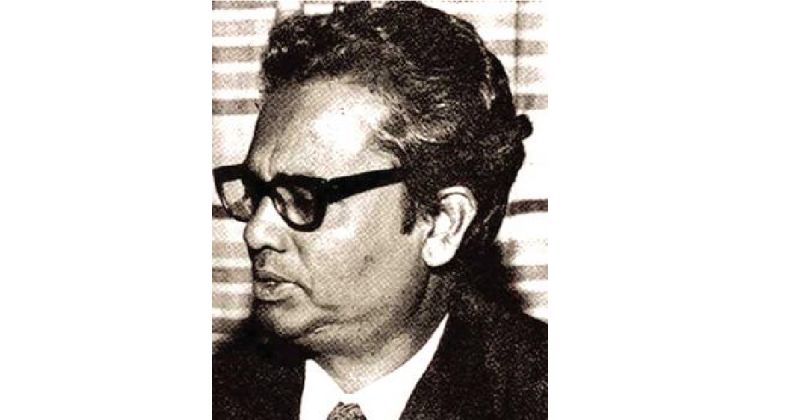- Google fires 28 workers protesting contract with Israel |
- US vetoes widely backed resolution on Palestine as UN member |
- Dhaka’s air quality remains ‘unhealthy’ Friday morning |
- India starts voting in the world's largest election |
- Iran fires air defense batteries in provinces |
Munier Chowdhury’s 96th birth anniversary observed

Munier Chowdhury
Dhaka, Nov 28 - The 96th birth anniversary of eminent Bengali, playwright, linguist, educationist, political activist and literary critic Munier Chowdhury was observed on Saturday, and marking the occasion, Theatre, one of the prominent drama groups in the country, commemorated it by organizing an event at Bangladesh Shilpakala Academy's Experimental Theatre Hall, conferring the annual ‘Munier Chowdhury Memorial Award’ and ‘Mohammad Zakaria Memorial Award’ for the classes of 2021 and 2020.
Popular actor Tariq Anam Khan received the Munier Chowdhury Memorial Award 2021, while Jyoti Sinha received the ‘Mohammad Zakaria Memorial Award 2021’. Due to the Covid-19 pandemic, the 2020 awards were not handed over to the recipients Sara Zaker and Sambit Saha, respectively, last year; thus they were also conferred on this year’s event.
Since 1989, the Munier Chowdhury Memorial Award has honoured many prominent cultural personalities including Dr Selim Al Deen, Abdullah Al Mamun, Syed Shamsul Haq, Mamunur Rashid, Aly Zaker, Asaduzzaman Noor, Nasiruddin Yousuff and more.
Munier Chowdhury was born on November 27, 1925 in Manikganj. He spent his childhood in Manikganj, Pirojpur, and different parts of East Bengal, due to his father's job.
After his family moved to Dhaka permanently in 1936, he completed his SSC from Dhaka Collegiate School in 1941 and went to Aligarh Muslim University. He came back and studied English literature for his bachelor’s degree (with distinction) in 1946 and Master’s in 1947 at Dhaka University.
At that time of political unrest due to the Bengali Language Movement, he got arrested for protesting against police brutality and the murdering of students.
He was jailed for two years for his support in the Bengali Language Movement, and while in prison, he showed up at the Master’s examination in Bengali literature in 1954 and stood first in the first class. In 1958, he acquired his third Master’s degree in linguistics from Harvard University.
In 1947, Choudhury began his career in teaching at Brajalal College in Khulna. He was moved to Jagannath College in Dhaka in 1950. He then joined Dhaka University in 1950 and taught both in the departments of English and Bengali, later promoted as a professor in 1970 and the dean of the faculty of arts in 1971.
During his imprisonment in 1952-54, Munier Chowdhury wrote his symbolic drama on the historic language movement, Kobor (The Grave). He then went on writing some of his iconic works including Roktakto Prantor (1959), Chithi (1966) and Polashi Barrack O Onyanno (1969).
In 1965, Choudhury redesigned the keyboard of the Bangla typewriter, named Munier Optima Keyboard as a team with Remington typewriters of then East Germany.
In 1967, Munier Chowdhury protested the Pakistan government’s prohibition on Tagore songs on radio and TV. He effectively took an interest in the non-co-operation movement during the early part of 1971 and denied his award Sitara-e-Imtiaz, awarded by the Government of Pakistan in 1966.
Munier Chowdhury died on December 14, 1971, at the age of 46 in Dhaka as one of the victims of the brutal assassination of the intellectual martyrs of Bangladesh, just two days before it got its victory in the 1971 Liberation War.
He was awarded Independence Day Award, the country’s highest state honour in 1980.
Central Road, the road in Dhaka where Choudhury lived, was renamed Shaheed Munier Chowdhury Road.
Last year, search engine giant Google honoured Munier Chowdhury with a special doodle design. In 1991, on the 20th anniversary of Bangladesh’s independence, the government provided a commemorative stamp honouring the legendary martyred intellectual. - UNB

